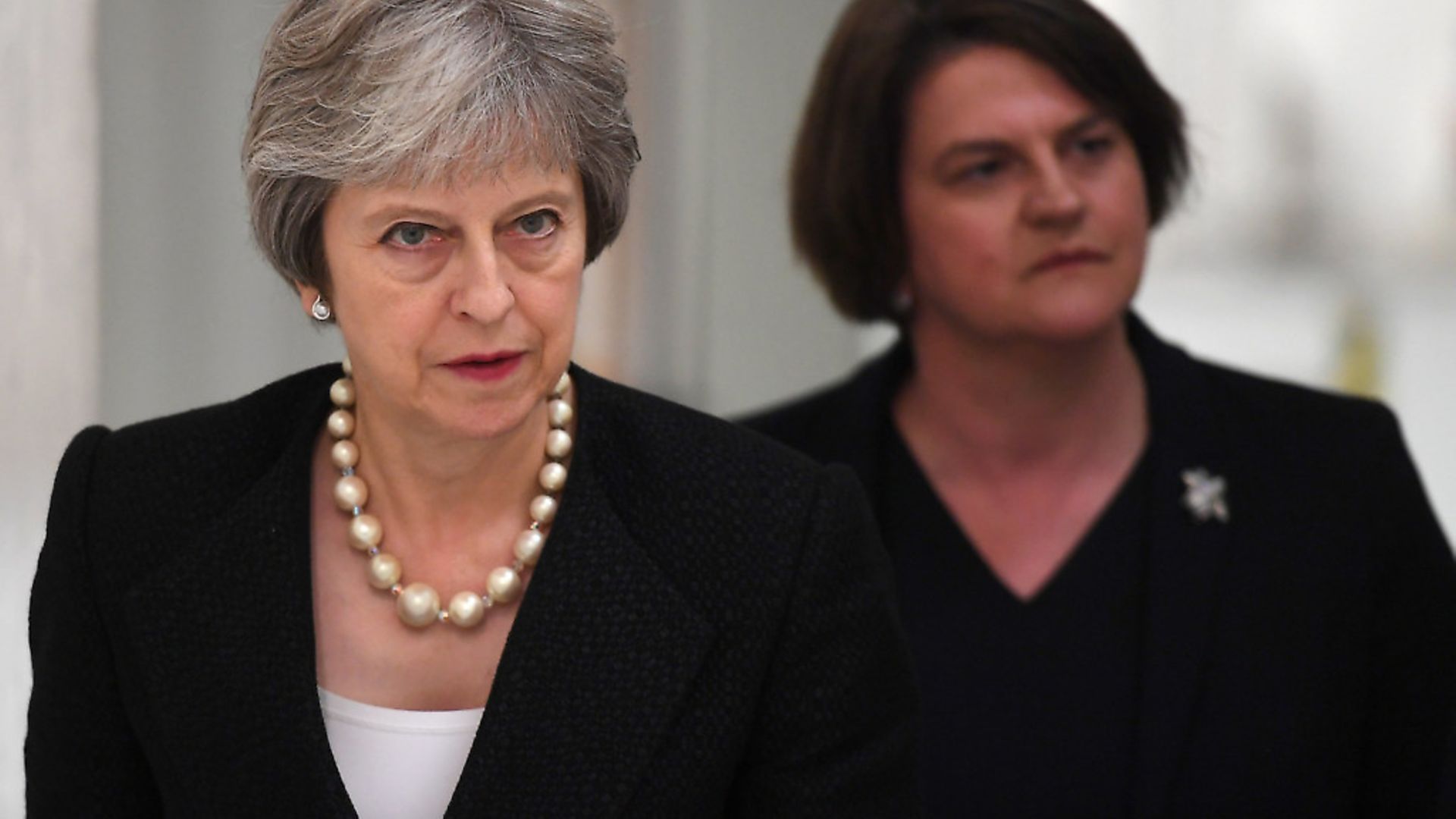
Peace in Northern Ireland is still not a done deal, says Andrew Adonis, and Brexit poses its gravest threat
Boris Johnson complained last week that Northern Ireland was ‘the tail wagging the dog’ of Brexit.
This is the most irresponsible statement by a former minister in my lifetime.
Had Johnson bothered to talk to those affected – as I did in Belfast and the border towns last week – they would have told him that peace in Northern Ireland is still not a done deal; that the Troubles in the 1960s started with the murder of customs officials on the north/south border in South Armagh and County Down; and that the Northern Ireland police force sees Brexit as its most serious threat. This is not because there is likely to be any immediate return of widespread terrorism — although even now there is recurrent community violence, as in Derry/Londonderry over the past fortnight – but because the police fear that differential north/south trade regimes, even if there is no physical border infrastructure, will inevitably breed mass smuggling and contraband, of which there is a long history across the Irish border. That will in turn breed illegality and organised crime linked to extremists.
I went to the border at Newry, where the A1 Belfast/Dublin motorway passes, and met Damian McGenity and campaigners against a new border and Brexit. They told me horrific stories of the living past, of the thousands of businesses and people who constantly trade and travel across the border; and they took me to their huge banner across the border, featuring a watchtower with the words, ‘Listen to our voices: no EU frontier in Ireland’.
Theresa May is contradictory about the Irish border, as is the Democratic Unionist Party, with which she is effectively in coalition. Both claim to oppose a hard border, yet both support a hard Brexit which will inevitably entail a new border. May is quite honest about wanting hard Brexit for the UK at large, and is therefore in a public bind about Ulster. As for the DUP, it became clear to me after hours in Stormont that, despite its public protestations to the contrary, the DUP strongly supports a hard Brexit precisely because, for sectarian reasons, it wants new barriers with the Republic of Ireland. Hence the DUP’s decisive vote in parliament last week against a customs union, coming after its refusal to restart the devolved institutions in Belfast – set up under the Good Friday Agreement which the DUP bitterly opposed in 1998 because of its power-sharing provisions.
Last December Michel Barnier said, quite rightly, that the EU would not allow Brexit negotiations to start at all if there were no guarantees against a hard border in Ireland. The upshot was a preliminary UK-EU agreement that if, at the end of the ‘transition’ period in December 2020, there is no new treaty relationship between Britain and the EU that avoids a new border, the backstop will be a continuation of the status quo.
The problem for May — and the Achilles heel of Brexit — is that this ‘backstop’ is both essential yet unviable if Britain does a hard Brexit. It took Arlene Foster of the DUP about 30 seconds to work out that if the backstop applies to Northern Ireland but not to the rest of the UK, and Britain leaves the customs union and single market, there will have to be a hard internal border down the Irish Sea. This is why, amid great crisis last December, the DUP extracted a parallel commitment from May that there would be no internal UK tariffs or customs controls — a commitment which, during equal crisis in the House of Commons last week, the government agreed to enshrine in law at the behest of Foster and Rees-Mogg.
But if there can be no border down the Irish Sea, how is it possible for Britain to leave the customs union and the single market while Ireland, north and south, does not do so? It is totally impossible.
Johnson wishes that this problem would simply go away and wants May to walk away from her solemn Irish commitments just as he walked away from the Foreign Office and all his Brexit promises. May cannot do this if she is to retain a shred of credibility and honour. But she is coming close to it. In Belfast last week, virtually handcuffed to Foster, May disowned the backstop. It ‘does not deliver,’ she said. ‘The economic and constitutional dislocation is something I will never accept.’
So May is now saying that she will never accept what she has already accepted and that the backstop, which is there to avoid unacceptable economic dislocation, is now unacceptable to her and to the DUP, precisely that is what she does want.
So it’s not the tail wagging the dog. The whole British bulldog, tail and all, is trapped in a cinema with no exits, watching Theresa in Wonderland.









